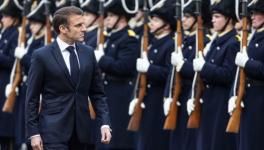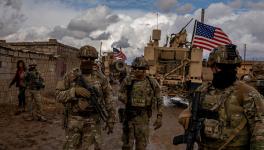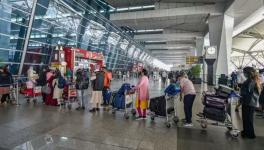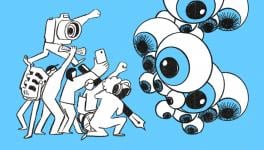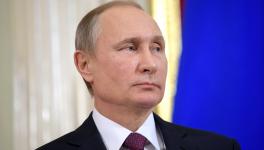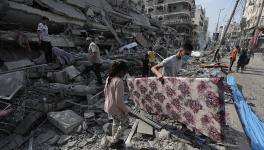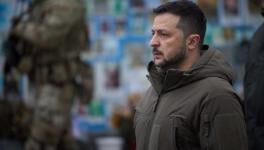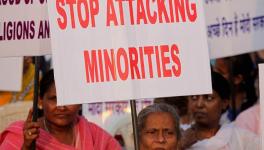An introduction to the NSA leaks
This video provides a summary of the revelations made by Edward Snowden, an NSA systems operator, and highlights the dangers of the mass surveillance being carried out by the US government on global citizens.
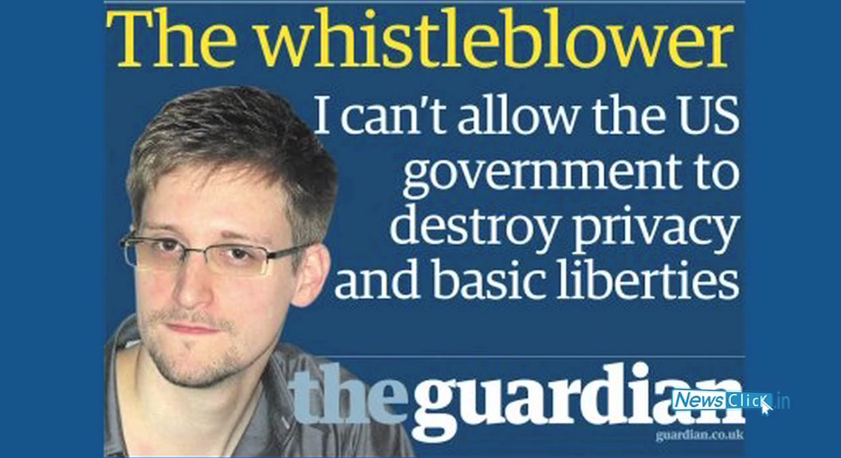
Transcript:
Rishab Bailey (RB): Hello and welcome to Newsclick. As we know Edward Snowden has been in the news for the past year or so. Let's remind ourselves of his story. As an idealistic young systems engineer at the NSA, America's premier spy agency, he thought he was helping keeping the world's people safe but what he saw shocked him so much that he enlisted two leading journalists, Glenn Greenwald and Laura Poitras, to tell the truth. Last June we were treated to daily reports of a James Bond style manhunt that spanned the globe from Hong Kong to Russia to South America. It even involved the President of Bolivia being held hostage in Spain. So what prompted the US to launch this all out war?
Nagarjun Kandukuru (NK): Snowden revealed that the NSA was collecting data, a lot of data. In fact all the digital data that you and I are generating, phone records, emails, text messages, documents, pictures, financial transactions, our contacts, everything. In a typical month just one of their programmes called 'Boundless Informant' managed to collect ninety seven billion, that's billion with a 'b', pieces of information. Afghanistan led the way with India not too far behind. In fact it appears that the NSA can listen to your conversations even when your phone is switched off. Your phone is now a surveillance device that you can also play 'Angry Birds' on.
RB: This comprehensive surveillance allow the NSA to create elaborate digital profiles of every human being including you and me and place us on networks of people suspected of working against their interests. If you email the friend who went to Jantar Mantar for a demonstration against Bt cotton or Bt brinjal, you have a black mark against you. If you bought a copy of Arundhati Roy's essays or perhaps read 1984 online, the case strengthens. Before you know it, you have a 78.3 percent chance of being hit by a drone, but you could say governments have always spied on people. You'd be right, but it's the scale and depth that are alarming. It used to be that a few identified suspects would be monitored based on evidence but now everyone is a suspect and it's up to you to prove that you aren't one.
NK: On the face of it all this is being done for 'world peace', but in all the years that these programmes have existed there is no record of even a single terror plot being foiled by the NSA. So we must look elsewhere for an explanation. We posit two less altruistic reasons. The first is control and urge many governments have. The need and ability to shape a global discourse or narrative is central to Uncle Sam's conception of the world. Thus our Prime Minister, Manmohan Singh's phones were tapped during a G20 summit. Intelligence of this sort is used in real time negotiations. This enables the so-called 'Five Eyes', the US, Britain, Canada, Australia, New Zealand, and Israel to dictate Geo-political outcomes. The second reason is a bit more prosaic. As it was said during the Watergate era, just “follow the money”. Snowden's revelations have shown that the US has systematically targeted key financial interests. Brazil's state owned 'Petrobras' was snooped on during oilfield auctions. Similarly, the security and privacy of the entire global banking system, including credit card networks, have been compromised.
RB: Comprehensive surveillance has profound implications for all of us. For starters, are you comfortable with your intimate conversations being stored in perpetuity by the government? What if every Tom Dick and Harry could get access to your banking history and the results of your medical tests? Do you really want an employer to be able to dig up something stupid that you might have done while in school or college? Can humanity remain sane when 'Big Brother' is watching every breath we take and every move we take? Let's not forget that in today's online world our tastes are increasingly shaped by automated choices based on data collected about us. This acts to limit the world we are exposed to. Essentially you only see what a Google or Facebook wants you to see. In other words you are your digital footprint.
NK: As bad as that is, the biggest dangers of surveillance are of a societal nature. Society progresses through development of ideas at the fringes of the mainstream. Surveillance enables dissenters and activists to be selectively targeted and persecuted for not conforming with the norm. For instance, what would happen to the 'Narmada Bachao Andolan' if the government could easily throw the book at, say a Medha Patkar, based on something she may have said twenty years ago? Surveillance really is Digital McCarthyism, by another name. We all know that the US asserts military superiority over land, water and space. What Edward Snowden exposed is how the American imperialistic agenda is being fulfilled through the co-option of supposedly democratizing technologies such as the Internet. It's up to us to reclaim the final frontier. In the next video in the series, we look at the methods by which surveillance is being carried out.
Get the latest reports & analysis with people's perspective on Protests, movements & deep analytical videos, discussions of the current affairs in your Telegram app. Subscribe to NewsClick's Telegram channel & get Real-Time updates on stories, as they get published on our website.









